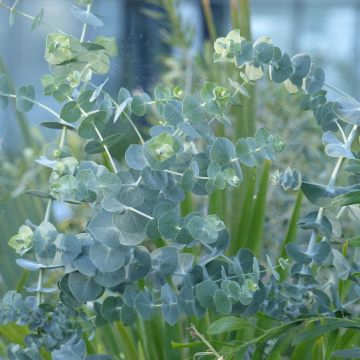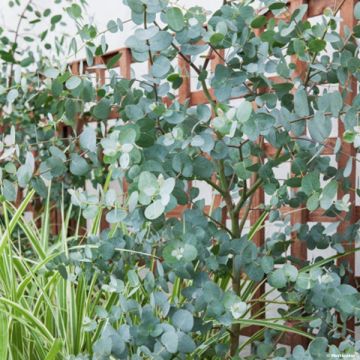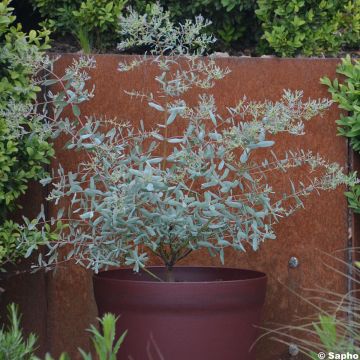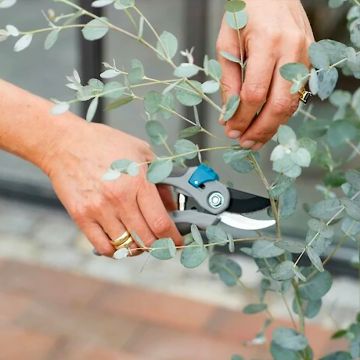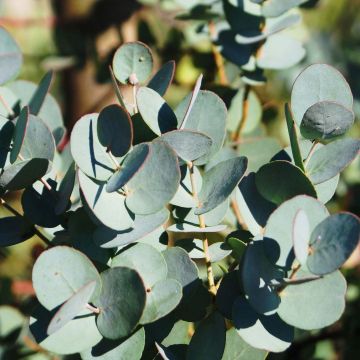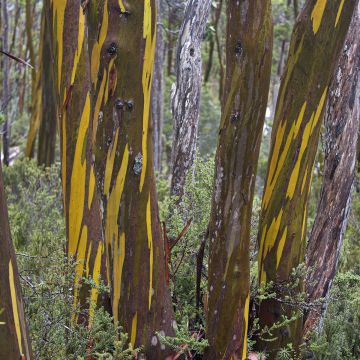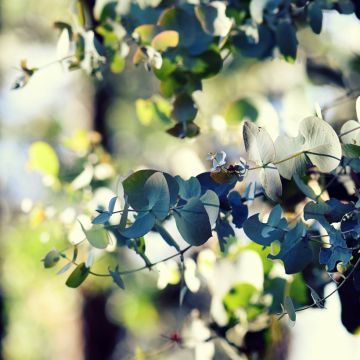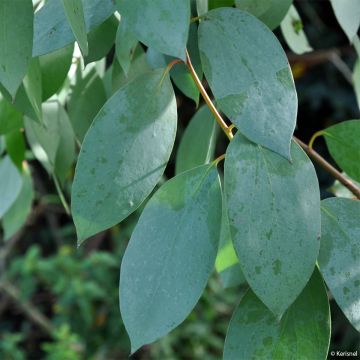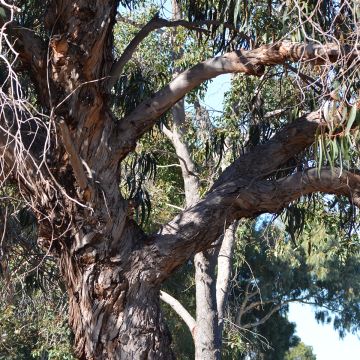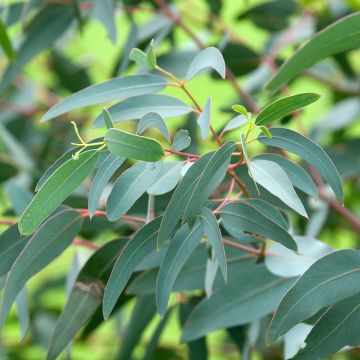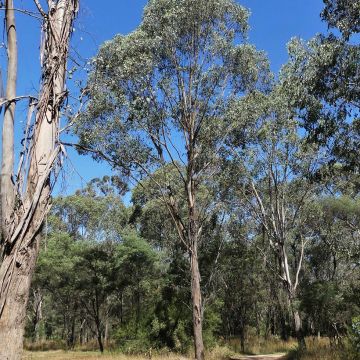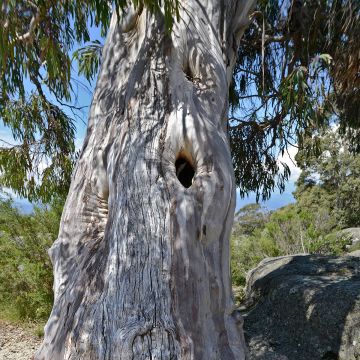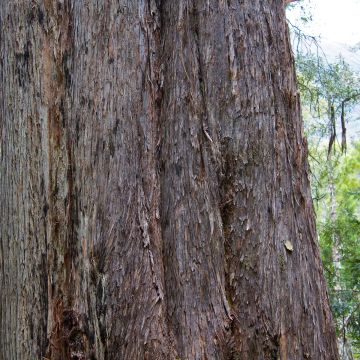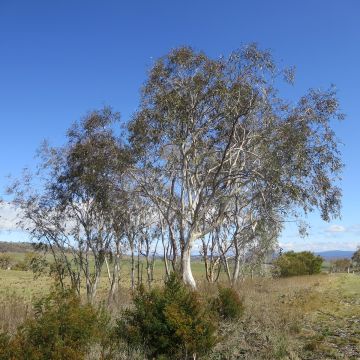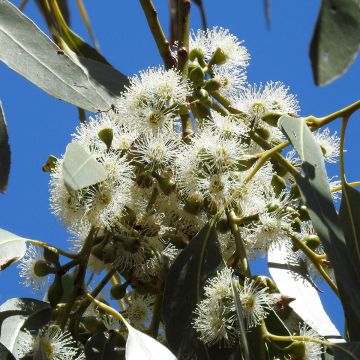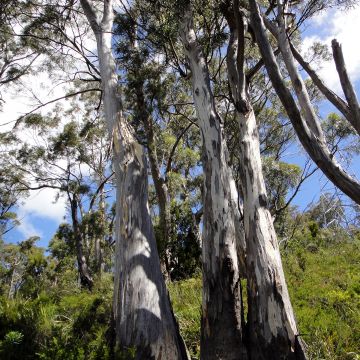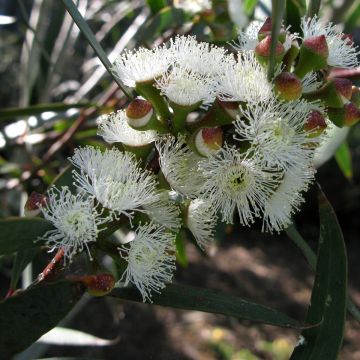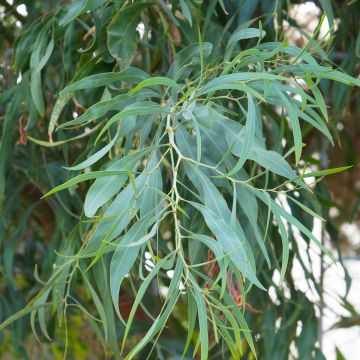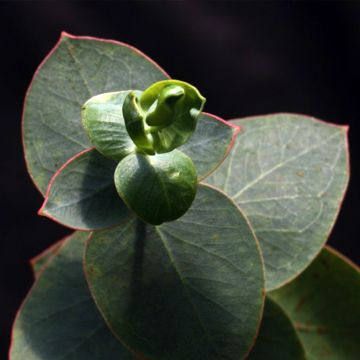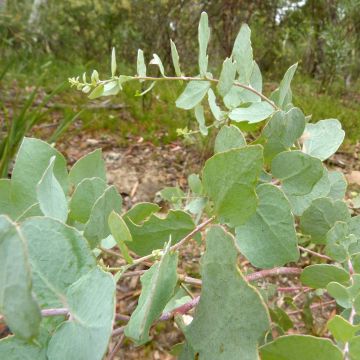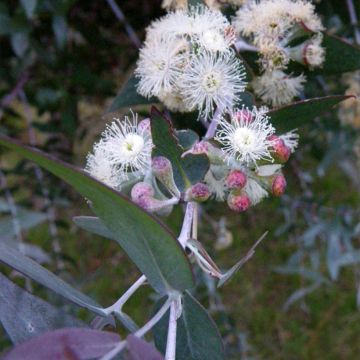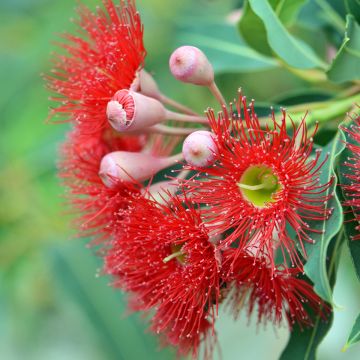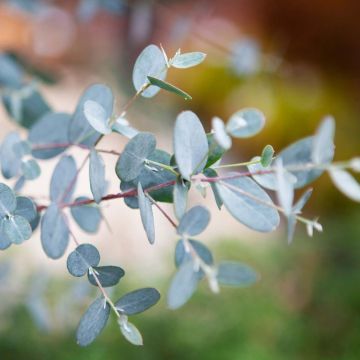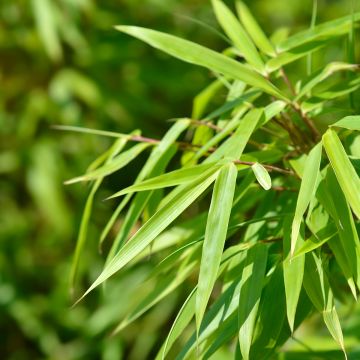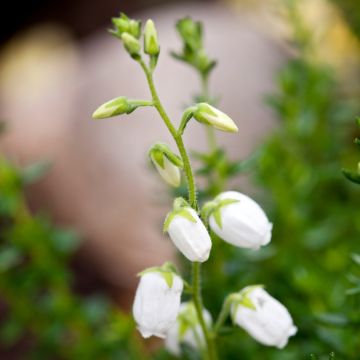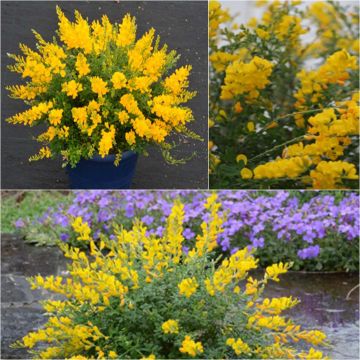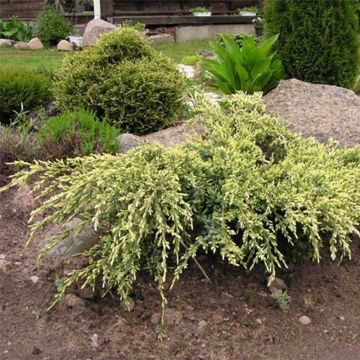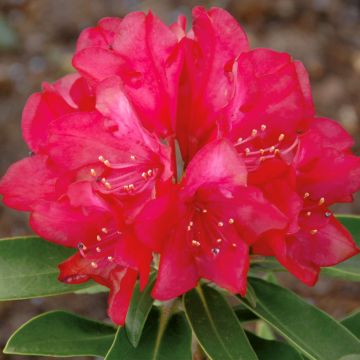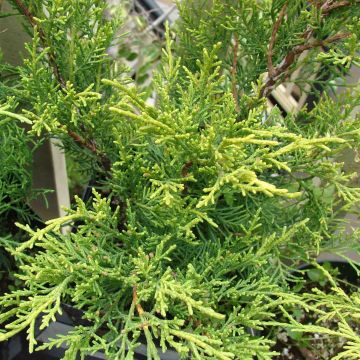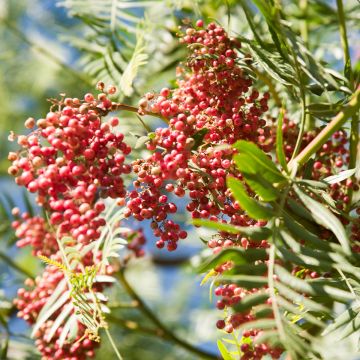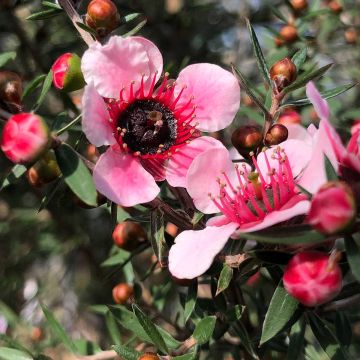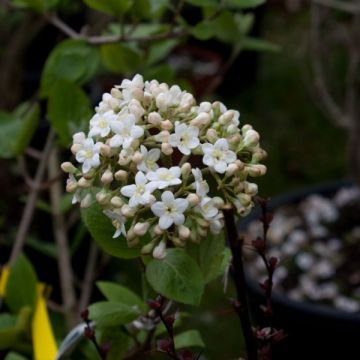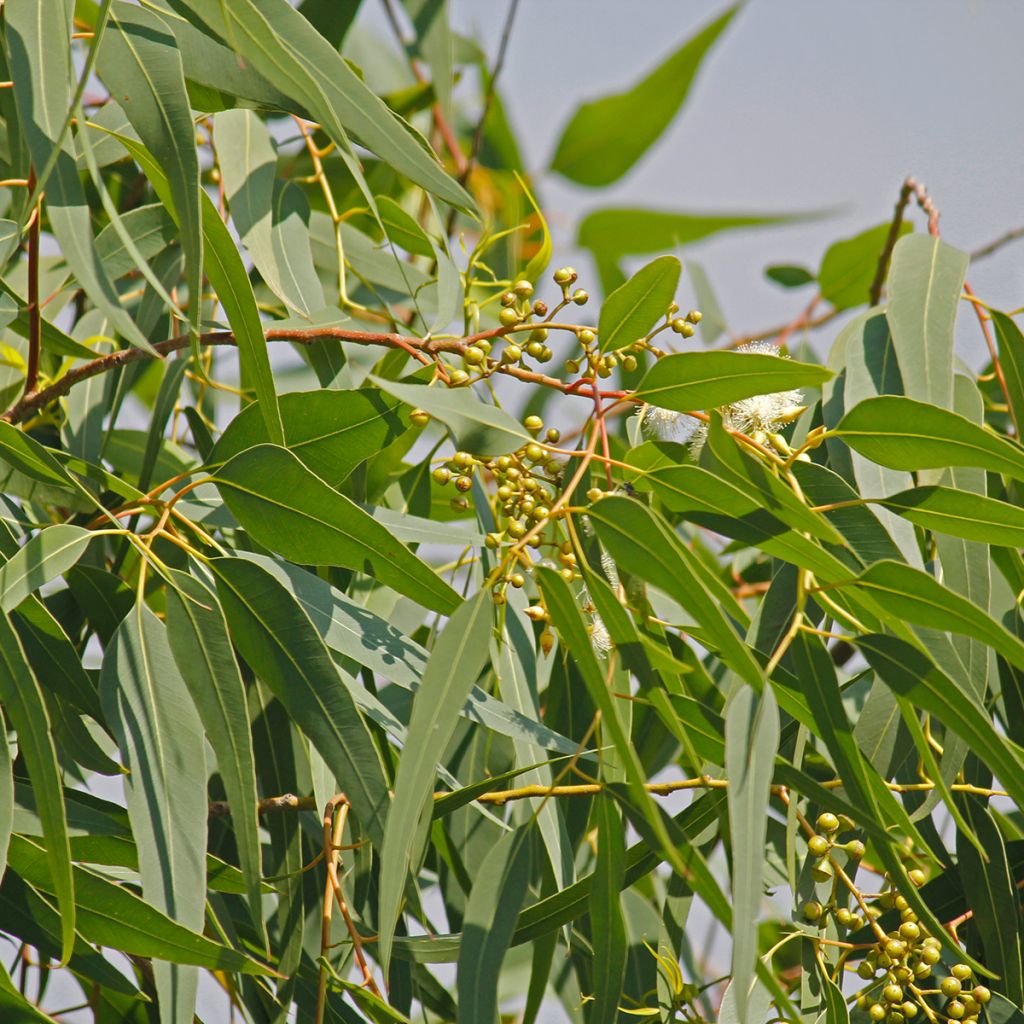

Corymbia citriodora - Eucalyptus citronné
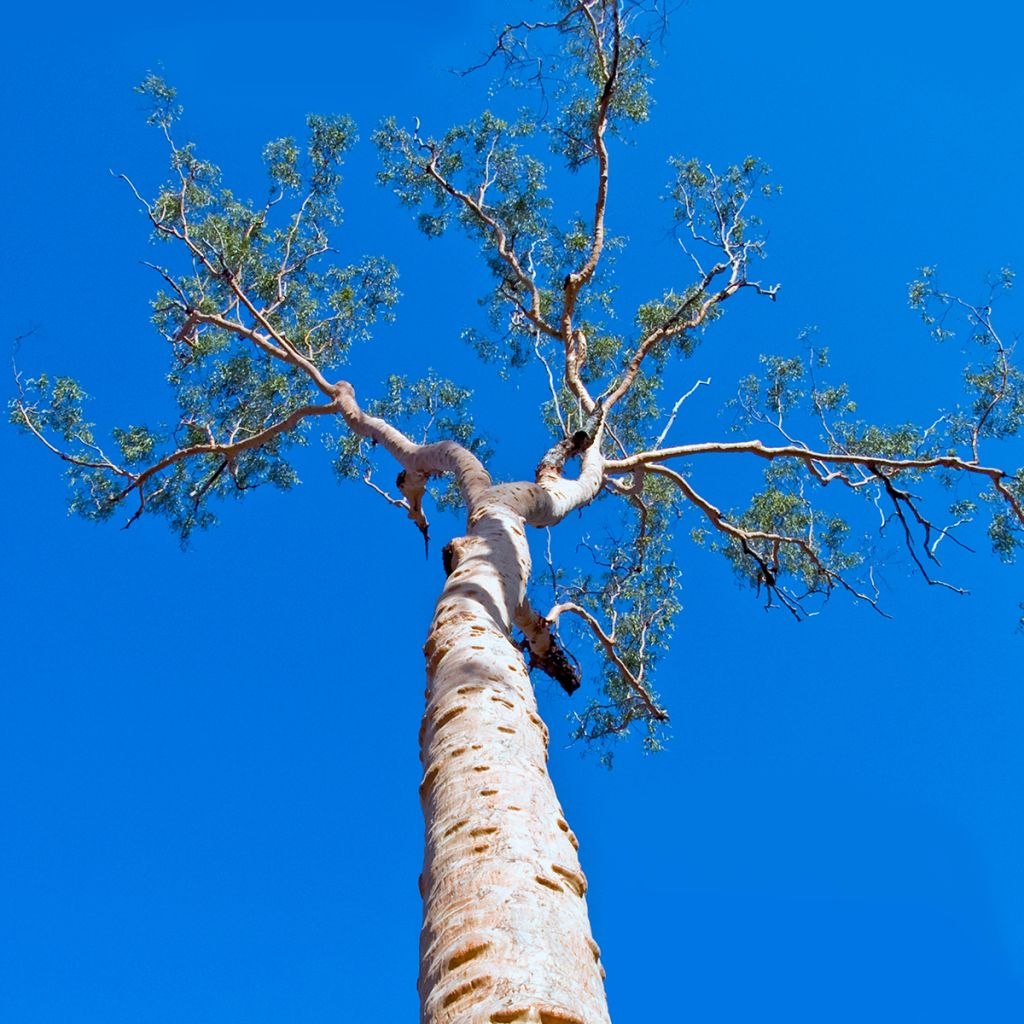

Corymbia citriodora - Eucalyptus citronné
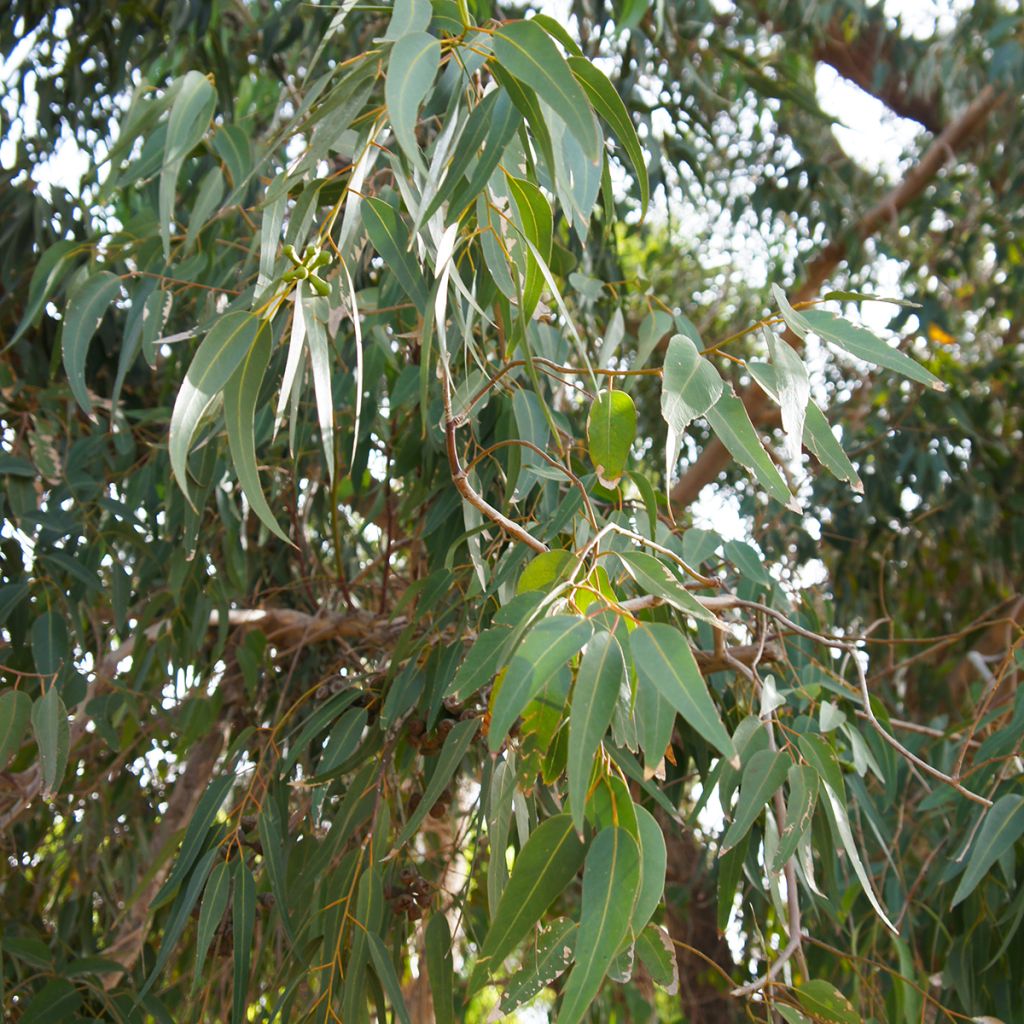

Corymbia citriodora - Eucalyptus citronné
Eucalyptus citriodora
Corymbia citriodora
Lemon-scented gum
Why not try an alternative variety in stock?
View all →This plant carries a 24 months recovery warranty
More information
We guarantee the quality of our plants for a full growing cycle, and will replace at our expense any plant that fails to recover under normal climatic and planting conditions.
Oversize package: home delivery by special carrier from €6.90 per order..
Express home delivery from €8.90.
From €5.90 for pickup delivery and €6.90 for home delivery
Express home delivery from €8.90.
From €5.90 for pickup delivery and €6.90 for home delivery
Express home delivery from €8.90.
From €5.90 for pickup delivery and €6.90 for home delivery
Express home delivery from €8.90.
Does this plant fit my garden?
Set up your Plantfit profile →
Description
Eucalyptus citriodora, has a very aromatic foliage, with a scent of lemongrass, used in aromatherapy in the form of essential oil of Lemon Eucalyptus. This tender tree can reach large dimensions in open ground and in a favourable climate. Its greyish, evergreen foliage perfumes the air in humid weather. This eucalyptus is also appreciated for its decorative bark, the straightness of its trunk and the transparency of its foliage providing light shade. Its cultivation does not present any particular difficulty in well-drained soil, even poor and dry in summer. It adapts to pot culture where it can be maintained for several years. This allows amateur gardeners to shelter it from the cold in winter.
Eucalyptus citriodora is a tree from the Myrtaceae family, native to the east of Australia, specifically Queensland. In nature, it can reach about 50 m (164 ft) in height. In gardens, it rarely exceeds 27 m (88 ft 7 in) in height and 18 m (59 ft 1 in) in spread. Growing in pots allows it to be kept in much more modest proportions, at least during its young years, and to be grown outdoors during the warm season in all regions. It is a species of light and acidic or basic soil (rich in volcanic rocks like basalt or peridotite), but not very chalky, filtering and poor. This eucalyptus hates heavy, compact, very clayey soils. Young plants must be protected from frost.
The habit of the Lemon Eucalyptus is not very branching, its very straight trunk supports a light and not very developed crown. It is covered with a fibrous bark that changes colour with the seasons: it goes from white to pink or light beige while exfoliating in small irregular plates, generally at the end of June. The evergreen leaves are entire, narrow and lanceolate (ending in a point), 7 to 15 cm (2.8 to 5.9 in) long, and 0.7 cm (0 and 0.3 in) to 1.5 cm (0.6 in) wide. Their colour is a beautiful soft grey-green. The shape of the leaves varies depending on the age of the branch that carries them: on young shoots, they are broad, downy, and slightly waffled in appearance. Subsequently, the leaves that develop are carried by a long petiole, they lengthen and become leathery and smooth. In pots, the bush can be pruned each year in the spring. Flowering occurs in summer, on mature trees. The cream-yellow flowers are grouped by 11 to 20 units in inflorescences that are born in the leaf axil. The fruits of Eucalyptus citriodora are small woody capsules containing many very fine seeds.
The Lemon Eucalyptus can be planted in open ground only on a narrow strip of the Mediterranean coast, and in pots everywhere else. It is used as a single specimen, in alignment or in a grove in a large garden. Traditionally, the mimosas (Acacia sp) are among the few bushes and trees that appreciate the close company of the Eucalyptus, which deplete the soil's reserves of water and food. In an exotic setting, they can be combined with large palm trees (Jubea chilensis), Banksia, Metrosideros, or large Grevillea...
Uses in aromatherapy: rubbing the foliage on the skin would keep mosquitoes away. Due to its composition rich in anti-inflammatory principles, Lemon Eucalyptus is traditionally used to soothe rheumatic pains. The essential oil is also reputed for its calming and relaxing effects in case of stress, or difficulty falling asleep.
Report an error about the product description
Eucalyptus citriodora in pictures


Plant habit
Flowering
Foliage
Botanical data
Corymbia
citriodora
Myrtaceae
Lemon-scented gum
Australia
Other Eucalyptus
Planting and care
Eucalyptus citriodora is not very hardy and can only be grown in the ground in very warm climates. It does not cope well with frosts, particularly in its youth. It enjoys full sun, less so semi-shade and not at all full shade. It adapts to acidic to very slightly chalky soils, but it cannot tolerate compact and water-logged soils at all. A very well-drained soil is essential, whether it is sandy or shaly. It tolerates drought well once well-rooted. Pruning is not necessary.
Pot culture: this is not a long-term prospect as the development of this eucalyptus is significant. A mixture of leaf compost and coarse sand should be suitable. Watering will be regular, but quite spaced out in time: let the substrate dry a little before watering again. Shelter your pots from winter frosts in a very bright, but cool place.
Planting period
Intended location
Care
-
, onOrder confirmed
Reply from on Promesse de fleurs
Evergreen shrubs
Haven't found what you were looking for?
Hardiness is the lowest winter temperature a plant can endure without suffering serious damage or even dying. However, hardiness is affected by location (a sheltered area, such as a patio), protection (winter cover) and soil type (hardiness is improved by well-drained soil).

Photo Sharing Terms & Conditions
In order to encourage gardeners to interact and share their experiences, Promesse de fleurs offers various media enabling content to be uploaded onto its Site - in particular via the ‘Photo sharing’ module.
The User agrees to refrain from:
- Posting any content that is illegal, prejudicial, insulting, racist, inciteful to hatred, revisionist, contrary to public decency, that infringes on privacy or on the privacy rights of third parties, in particular the publicity rights of persons and goods, intellectual property rights, or the right to privacy.
- Submitting content on behalf of a third party;
- Impersonate the identity of a third party and/or publish any personal information about a third party;
In general, the User undertakes to refrain from any unethical behaviour.
All Content (in particular text, comments, files, images, photos, videos, creative works, etc.), which may be subject to property or intellectual property rights, image or other private rights, shall remain the property of the User, subject to the limited rights granted by the terms of the licence granted by Promesse de fleurs as stated below. Users are at liberty to publish or not to publish such Content on the Site, notably via the ‘Photo Sharing’ facility, and accept that this Content shall be made public and freely accessible, notably on the Internet.
Users further acknowledge, undertake to have ,and guarantee that they hold all necessary rights and permissions to publish such material on the Site, in particular with regard to the legislation in force pertaining to any privacy, property, intellectual property, image, or contractual rights, or rights of any other nature. By publishing such Content on the Site, Users acknowledge accepting full liability as publishers of the Content within the meaning of the law, and grant Promesse de fleurs, free of charge, an inclusive, worldwide licence for the said Content for the entire duration of its publication, including all reproduction, representation, up/downloading, displaying, performing, transmission, and storage rights.
Users also grant permission for their name to be linked to the Content and accept that this link may not always be made available.
By engaging in posting material, Users consent to their Content becoming automatically accessible on the Internet, in particular on other sites and/or blogs and/or web pages of the Promesse de fleurs site, including in particular social pages and the Promesse de fleurs catalogue.
Users may secure the removal of entrusted content free of charge by issuing a simple request via our contact form.
The flowering period indicated on our website applies to countries and regions located in USDA zone 8 (France, the United Kingdom, Ireland, the Netherlands, etc.)
It will vary according to where you live:
- In zones 9 to 10 (Italy, Spain, Greece, etc.), flowering will occur about 2 to 4 weeks earlier.
- In zones 6 to 7 (Germany, Poland, Slovenia, and lower mountainous regions), flowering will be delayed by 2 to 3 weeks.
- In zone 5 (Central Europe, Scandinavia), blooming will be delayed by 3 to 5 weeks.
In temperate climates, pruning of spring-flowering shrubs (forsythia, spireas, etc.) should be done just after flowering.
Pruning of summer-flowering shrubs (Indian Lilac, Perovskia, etc.) can be done in winter or spring.
In cold regions as well as with frost-sensitive plants, avoid pruning too early when severe frosts may still occur.
The planting period indicated on our website applies to countries and regions located in USDA zone 8 (France, United Kingdom, Ireland, Netherlands).
It will vary according to where you live:
- In Mediterranean zones (Marseille, Madrid, Milan, etc.), autumn and winter are the best planting periods.
- In continental zones (Strasbourg, Munich, Vienna, etc.), delay planting by 2 to 3 weeks in spring and bring it forward by 2 to 4 weeks in autumn.
- In mountainous regions (the Alps, Pyrenees, Carpathians, etc.), it is best to plant in late spring (May-June) or late summer (August-September).
The harvesting period indicated on our website applies to countries and regions in USDA zone 8 (France, England, Ireland, the Netherlands).
In colder areas (Scandinavia, Poland, Austria...) fruit and vegetable harvests are likely to be delayed by 3-4 weeks.
In warmer areas (Italy, Spain, Greece, etc.), harvesting will probably take place earlier, depending on weather conditions.
The sowing periods indicated on our website apply to countries and regions within USDA Zone 8 (France, UK, Ireland, Netherlands).
In colder areas (Scandinavia, Poland, Austria...), delay any outdoor sowing by 3-4 weeks, or sow under glass.
In warmer climes (Italy, Spain, Greece, etc.), bring outdoor sowing forward by a few weeks.

































